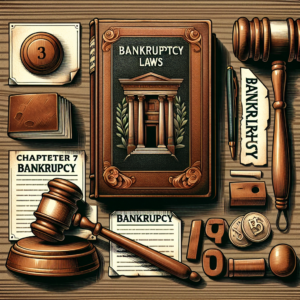Shocking Legal Rulings: Unveiling the Latest Controversial Judgments
In recent months, a series of legal rulings have ignited widespread controversy and public debate, raising questions about the integrity and impartiality of the judicial system. From high-profile criminal cases to contentious civil disputes, these decisions have not only shocked the public but also prompted discussions about the underlying principles of justice and fairness. This article delves into the most contentious legal judgments, their implications for public trust in the judiciary, and the broader societal impacts that may arise from these rulings.
Examining Recent Legal Decisions That Have Stirred Public Outrage and Debate
Recent legal decisions across various jurisdictions have sparked significant public outrage and debate, highlighting the complexities and challenges inherent in the judicial process. For instance, rulings related to police conduct, reproductive rights, and corporate accountability have polarized communities and ignited protests. One particularly notable case involved a controversial acquittal in a high-profile murder trial, which many perceived as a miscarriage of justice. The decision not only led to public demonstrations but also prompted calls for legislative reforms aimed at addressing perceived systemic biases within the legal framework. As these cases unfold, they serve as a stark reminder of the power of the judiciary and its profound impact on societal norms and values.
The Impact of Controversial Court Rulings on Public Trust in the Judicial System
Controversial court rulings can significantly erode public trust in the judicial system, as citizens grapple with the implications of decisions that seem to contradict widely held beliefs about justice and fairness. When rulings appear to favor certain groups over others or seem disconnected from societal values, public confidence in the impartiality of the courts diminishes. This decline in trust can lead to increased skepticism regarding the legal system's ability to deliver justice, potentially resulting in lower rates of civic engagement and participation in legal processes. Moreover, as citizens question the legitimacy of judicial outcomes, the fabric of democracy itself may be threatened, prompting calls for greater transparency and accountability within the judicial system.
Case Studies: Notable Legal Judgments That Defied Expectations and Precedents
Several notable legal judgments have defied expectations and established precedents, further complicating the public's perception of justice. One such case involved a landmark ruling on freedom of speech that allowed a controversial group to demonstrate in a public space, despite widespread public outcry. The court's decision was rooted in constitutional protections, yet it raised questions about the balance between free expression and public safety. Another case involved a significant ruling on environmental regulations, where a court overturned previous legislation aimed at protecting natural resources, citing economic implications as a primary concern. These cases exemplify the tension between legal principles and societal values, illustrating how judicial decisions can reverberate beyond the courtroom and into the lives of everyday citizens.
Analyzing the Legal Reasoning Behind Shocking Verdicts and Their Implications
The legal reasoning behind shocking verdicts often reveals the complexities of statutory interpretation and the application of legal principles. Judges are tasked with interpreting laws that may be ambiguous or outdated, leading to rulings that can seem counterintuitive or unjust to the public. For instance, in cases involving self-defense, courts may apply stringent criteria that can result in acquittals in situations where the community feels justice has not been served. Additionally, the reliance on precedent can sometimes lead to outcomes that appear disconnected from contemporary societal values, as courts grapple with the challenge of adhering to established legal frameworks while addressing evolving norms. Understanding the rationale behind these decisions is crucial for fostering informed discussions about the judicial process and its implications for society.
The Role of Media Coverage in Shaping Perceptions of Controversial Legal Cases
Media coverage plays a pivotal role in shaping public perceptions of controversial legal cases, often influencing the narrative surrounding judicial outcomes. Sensationalized reporting can amplify public outrage, framing legal decisions in a manner that may not fully capture the complexities of the cases at hand. The portrayal of judges, attorneys, and defendants can significantly impact how the public perceives the legitimacy of the judicial process. Furthermore, social media platforms have become battlegrounds for public opinion, where individuals express their views and mobilize support for various causes. As a result, the media's portrayal of legal cases can create a feedback loop, where public sentiment influences media coverage, which in turn shapes further public opinion, complicating the discourse surrounding justice and legal accountability.
Future Implications: How Recent Rulings May Influence Upcoming Legislation and Policy
The recent wave of controversial legal rulings is likely to have lasting implications for future legislation and policy. Lawmakers may feel compelled to respond to public outcry by introducing new laws aimed at addressing perceived injustices or systemic flaws within the legal system. For instance, rulings that have sparked significant public backlash may lead to legislative efforts to reform criminal justice practices, enhance accountability for law enforcement, or expand civil rights protections. Additionally, these decisions may prompt advocacy groups to mobilize and push for changes at both the state and federal levels, influencing the political landscape and shaping future judicial appointments. As society grapples with the ramifications of these rulings, the interplay between the judiciary and legislative bodies will be critical in determining the trajectory of legal and social reforms.
In conclusion, the recent wave of controversial legal rulings has not only stirred public outrage but also raised fundamental questions about the integrity and efficacy of the judicial system. As society navigates the complexities of these decisions, the interplay between public sentiment, media coverage, and legislative action will be crucial in shaping the future of justice. Understanding the implications of these rulings is essential for fostering informed discourse and ensuring that the principles of fairness and equality remain at the forefront of the legal system. As we move forward, it is imperative that all stakeholders engage in constructive dialogue to address the challenges posed by these shocking legal judgments and work towards a more just society.
